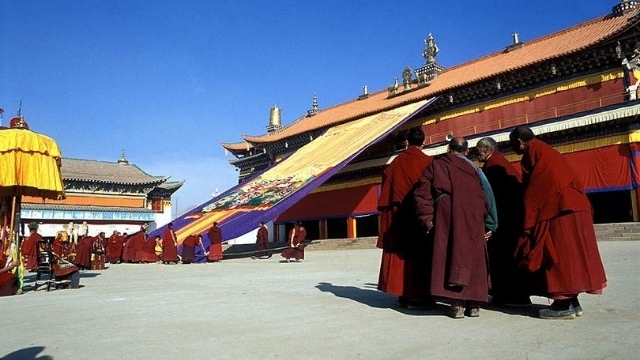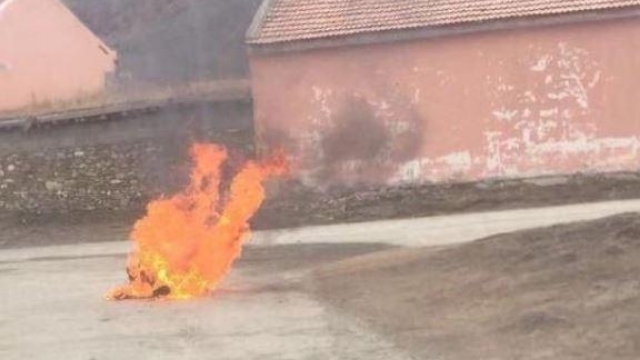From Bitter Winter
By Massimo Introvigne
The worst thing that ever happened to North Korean propaganda was Barbara Demick’s 2009 book Nothing to Envy (New York: Random House). The American journalist used the method she had first applied to Bosnia in 1996 with Logavina Street (Kansas City: Andrews McMeel), and offered a candid picture of life in North Korea by following the daily life of several inhabitants of Chŏngjin, the country’s third largest city. It was one of the memorable books of that year, as Demick told tales of ordinary horror and depicted a starving population, continuously harassed by a mad propaganda trying to persuade them that North Korea is the happiest country in the world, and punished with heavy jail penalties and even death for every attempt to live what elsewhere would be called a normal life. Nothing to Envy won the Samuel Johnson Prize (now the Baillie Gifford Prize), awarded every year in the UK to the best non-fiction book in English.
Having lived in South Korea for six years, Demick moved to China in 2007. She developed an interest in Tibet, and visited it, although for foreign reporters conducting extensive fieldwork in the Tibet Autonomous Region (TAR) is subjected to restriction and exceedingly difficult. TAR, however, includes roughly half of historical Tibet. The other half is divided into the Chinese provinces of Sichuan, Qinghai, Gansu, and Yunnan provinces. The majority of Tibetans now live there, and the part of the Tibetan plateau outside the TAR is the birthplace of many leading Tibetan figures, including the current Dalai Lama.
Until recent years, traveling in Tibetan areas outside the TAR was easier for Western reporters than doing the same in Tibet. Demick decided to study Ngaba, called by the Chinese Ngawa, a city of 15,000 and the seat of Ngaba (Ngawa) county (阿壩縣, population 73,000), under the authority of Ngawa Tibetan and Qiang Autonomous Prefecture (阿壩藏族羌族自治州, population one million) in Sichuan.
Ngaba was the capital of the ancient semi-independent Mei Kingdom, claimed by both Tibet and China but in fact ruled autonomously by a local dynasty. Princess Gonpo, one of Demick’s main characters, is the last king’s daughter. She was born in the royal palace of Ngaba in 1950, and witnessed the end of the Mei Kingdom after the People’s Liberation Army came there. The king was forced to abdicate in 1958, and both he and his wife “disappeared” during the Cultural Revolution, despite their initially conciliatory stance towards the CCP. Probably, the queen was killed, and the king committed suicide. At that time, Gonpo was at an elite CCP school in Beijing, groomed to become a loyal collaborator. Because of her class origins, she was harassed during the Cultural Revolution and sent to work in a farm in Xinjiang. She was later rehabilitated, and allowed to travel to India in 1989. She never came back, remaining with the Tibetan community in Dharamshala.
Gonpo knew everybody in Ngaba, including the lamas of the famous Kirti Monastery. Demick tells the story of other Tibetans in the city, through the disasters of 1958, when the CCP tried to impose “democratic reforms” that destroyed the local economy through collectivization and the ancient Buddhist culture through the atheist propaganda and the harassment of the monks, followed by the horrors of the Cultural Revolution, which Demick’s characters remember in graphic details.

While Demick was starting her project, Ngaba became famous for something else. On February 27, 2009, a young monk from Kirti, called Lobsang Tashi and nicknamed Tapey, set himself on fire to protest the Chinese repression of the 2008 human rights demonstrations throughout the Tibetan Plateau. Tapey wanted to imitate famous monks in Buddhist history who self-immolated by fire protesting for various causes, but did not know very well how to do it. He was saved from death by the police, and later appeared—drugged, according to Demick—in CCP propaganda videos, where he “confessed” that he had been “manipulated” by other Kirti monks to do what he did.
Tapey, however, was the first of a long series of self-immolators. When Demick finished writing her book, 156 Tibetans had self-immolated (they are now 165). Roughly one third were from Ngaba and its environs, and the city became known as “the world capital of self-immolation.” The immolators, many of them monks, became also more skilled at not surviving, ingesting gasoline to burn from the inside as well.

Demick’s book is no substitute for the scholarly literature on the Tibetan self-immolation. Its religious, cultural, and political aspects are discussed (in English) in a special issue of the Revue d’Études Tibétaines that includes the proceedings of a conference held at the Collège de France in Paris in 2012. The journal deserves praise for offering the download of this important issue free of charge through the “Digital Himalaya” project. Readers will discover that, not surprisingly, there are several highly debated issues about self-immolation, including the attitude of the Dalai Lama, who has tried to express respect for the bravery of the victims while not encouraging the practice, and the theological position of Buddhism on these incidents, which have a long tradition among different Buddhist schools (many remember the Vietnamese monks who set themselves on fire in the 1960s to protest against President Ngô Đình Diệm, 1901–1963).
Demick mentions these debates in passing but is more interested in telling the personal stories of some of those who self-immolated and their friends. Why did they do it? Why especially in Ngaba? Did they achieve something? The journalist believes that self-immolation comes from both a religious hope that a non-violent act (injuring only the victim and nobody else) can change the world, and a sense of desperation based on the feelings that all the other avenues to protest are now closed.
Ngaba became the center of these protests because it was the first area populated by Tibetans to experience the massive vexations of the Chinese Communist Army, from their first incursions in the area in the 1930s, when the starving Maoist soldiers boiled and ate the skins of the sacred monastery drums and the votive Buddhist figurines after they discovered they were made of barley flour and butter (hence the title of the book, “Eat the Buddha”). They also destroyed precious manuscripts and killed monks, and this well before the 1958 campaign and the Cultural Revolution. In 1958, some believed that armed struggle was an option. Their children and grandchildren had no such illusions, and decades of suffering and cruelty generated the self-immolations.
Did the self-immolators achieve something? They made more difficult for foreigners, including journalists, to visit Ngaba, where Demick reports the presence of 50,000 Chinese security personnel watching a population of 15,000 in the city and 73,000 in the county. Demick believes that the international embarrassment caused by the self-immolations did achieve some good results. Immigration of Han Chinese to Ngaba County was slowed down, and plans for a water diversion that would have dried up the Ngaku River and caused what the locals described as an ecological catastrophe have been cancelled.
On the other hand, nothing stops the repression of Tibetan identity and culture. In March 2020, Ngaba #3 Primary School switched its language of instruction from Tibetan to Chinese. And in 2019, students from all schools were required to participate in a musical competition where they were expected to “express their infinite love for the CCP.”
In the end, Ngaba County is not better than North Korea. “The level of fear among Tibetans is comparable to what I’ve seen in North Korea,” Demick concludes.

No comments:
Post a Comment
Comments are subject to deletion if they are not germane. I have no problem with a bit of colourful language, but blasphemy or depraved profanity will not be allowed. Attacks on the Catholic Faith will not be tolerated. Comments will be deleted that are republican (Yanks! Note the lower case 'r'!), attacks on the legitimacy of Pope Leo XIV as the Vicar of Christ, the legitimacy of the House of Windsor or of the claims of the Elder Line of the House of France, or attacks on the legitimacy of any of the currently ruling Houses of Europe.